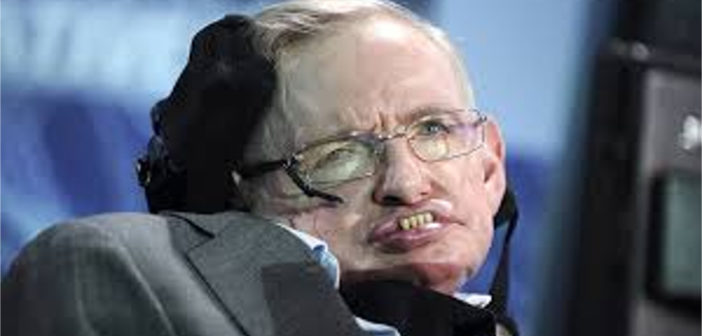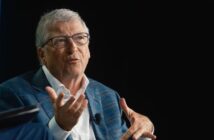Stephen Hawking, the iconic physicist and one of the greatest scientific mind in the world at this time has died at 76.
He died peacefully at his home in Cambridge in the early hours of Wednesday morning, his family said. In a statement, his children Lucy, Robert and Tim said: “We are deeply saddened that our beloved father passed away today.
“He was a great scientist and an extraordinary man whose work and legacy will live on for many years. “His courage and persistence with his brilliance and humour inspired people across the world.
“He once said, ‘It would not be much of a universe if it wasn’t home to the people you love.’ We will miss him forever.”
Professor Hawking explored both the very smallest and very largest parts of the universe: testing the limits of human understanding across time and space, and peering into the sub-molecular world of quantum theory.
Professor Hawking shot to international fame after the 1988 publication of A Brief History of Time, one of the most complex books ever to achieve mass appeal, which stayed on the Sunday Times best-sellers list for 237 weeks. Over the years, he would also embrace areas of popular culture appearing in both The Simpsons and hit US science comedy The Big Bang Theory.
His work ranged from the origins of the universe itself, through the possibility of time travel to the mysteries of space’s all-consuming black holes. His most famous theoretical breakthrough was the idea that black holes are not really black, but can produce thermal radiation and potentially “evaporate”. Scientists refer to such potential emanations as “Hawking radiation.”
“My goal is simple,” Professor Hawking once said. “It is complete understanding of the universe, why it is as it is and why it exists at all.”
With Roger Penrose, Professor Hawking showed that Albert Einstein’s theory of relativity implies space and time would have a beginning in the Big Bang and an end in black holes. He spent much of his career trying to find a way to reconcile Einstein’s theory with quantum physics and produce a “Theory of Everything.”
Professor Hawking said he wrote A Brief History of Time to convey as clearly as he could the topics that excited him. “My original aim was to write a book that would sell on airport bookstalls,” he told reporters at the time. “In order to make sure it was understandable I tried the book out on my nurses. I think they understood most of it.”
Born in Oxford on January 8, 1942, he attended Oxford University before moving onto Cambridge. From 1979 to 2009 he was Lucasian Professor of Mathematics at Cambridge – a post once held by Sir Isaac Newton. He was later director of research in the university’s Department of Applied Mathematics and Theoretical Physics.
Professor Hawking was confined to a wheelchair for much of his life, after contracting a rare form of motor neurone disease, at the age of 21. As his condition worsened, he had to resort to speaking through a voice synthesiser and communicating by moving his eyebrows.
Professor Hawking was married twice. In February 1990 he left Jane, his wife of 25 years, to set up home with one of his nurses, Elaine Mason. The couple married in September 1995 but divorced in 2006.




